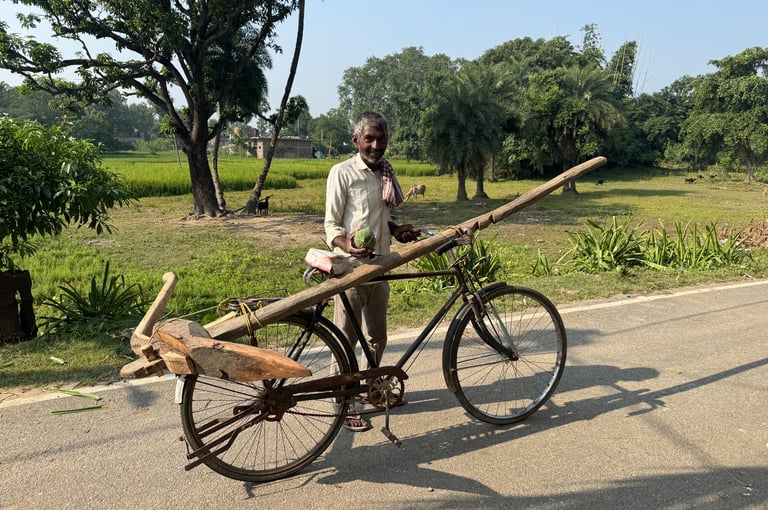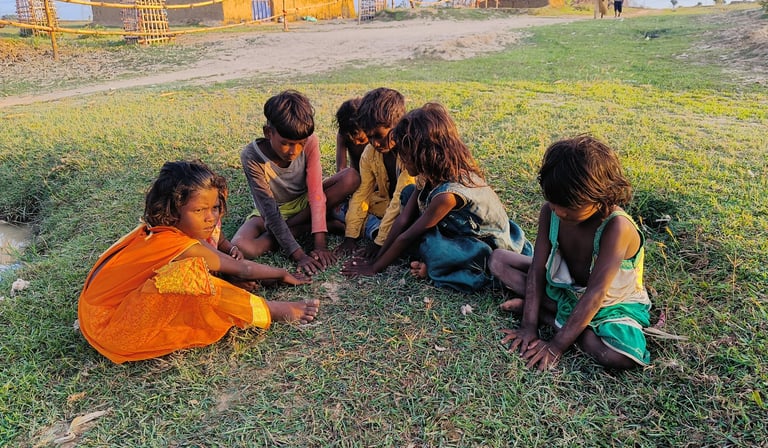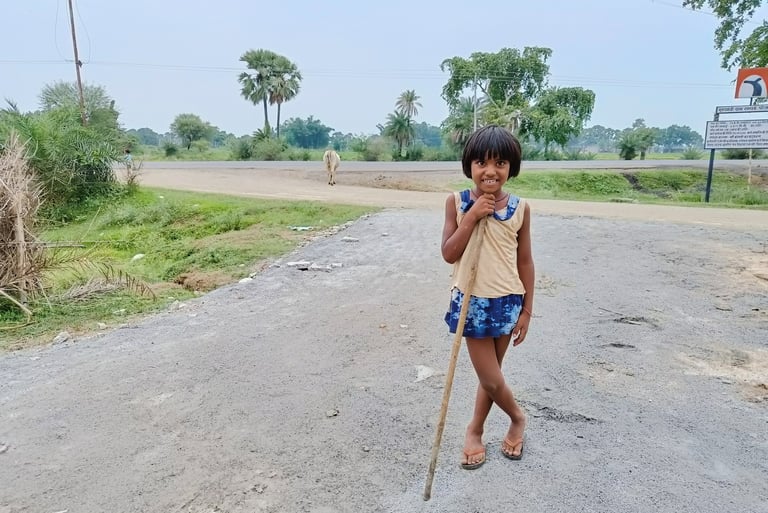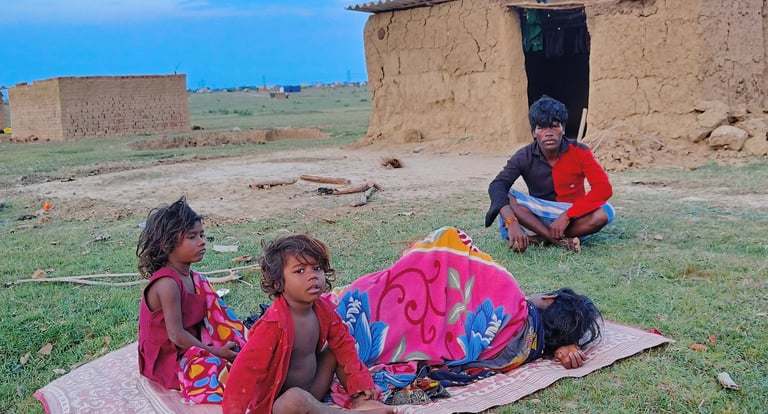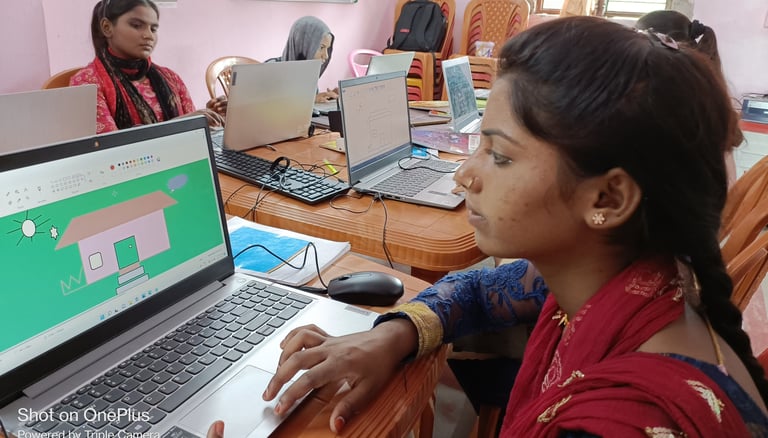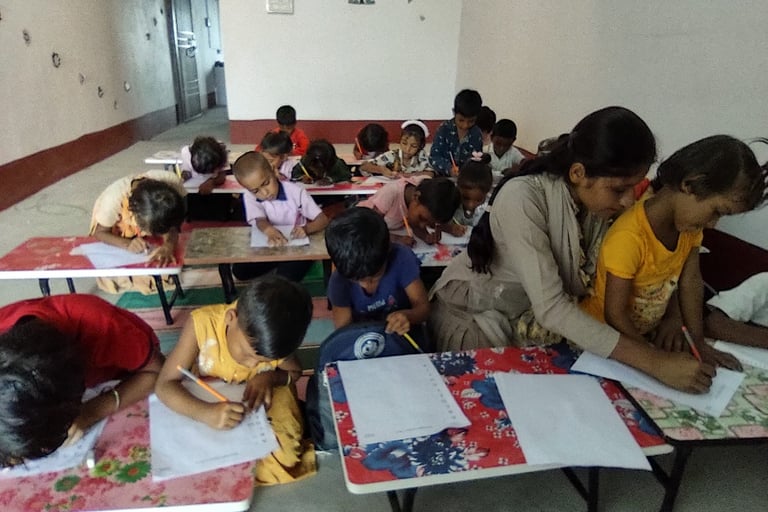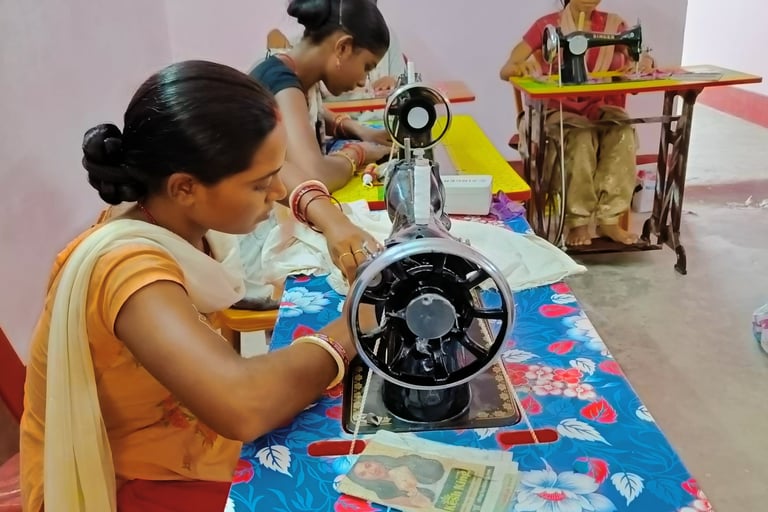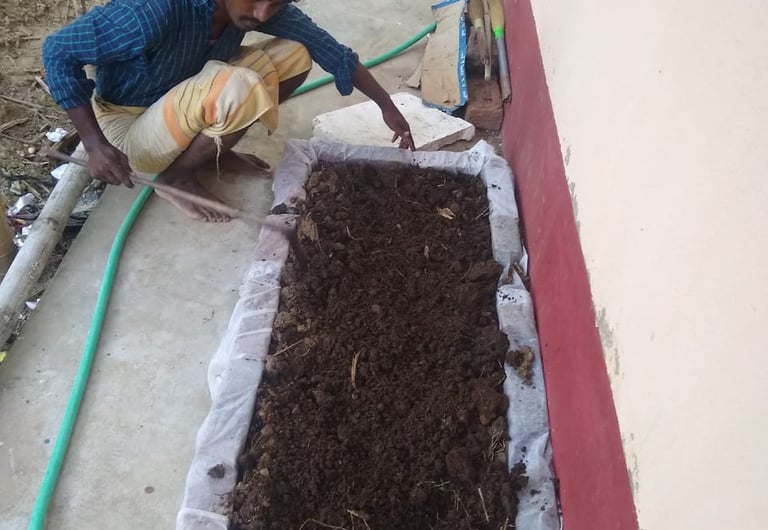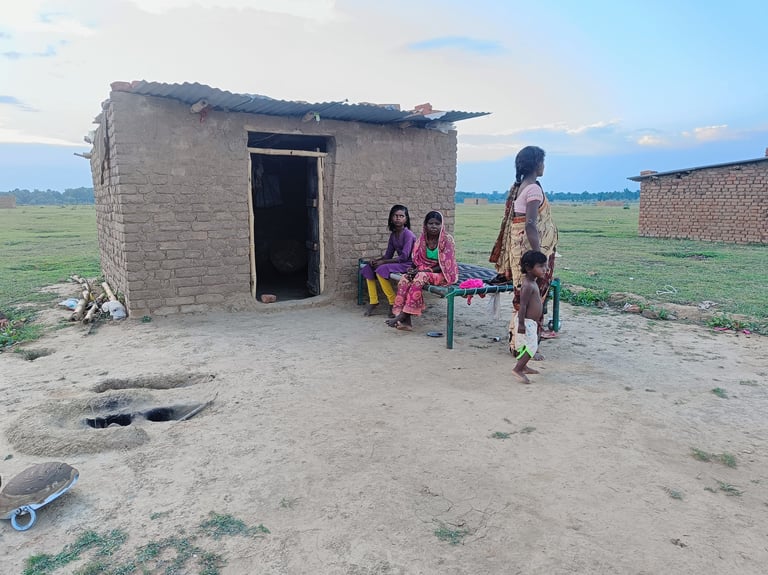

Rural communities across India face deep-rooted challenges that frequently go unnoticed alongside urban progress. Poverty, poor healthcare access, and limited educational opportunities continue to affect the quality of life for families. These issues are interconnected, as financial hardship reduces access to both health services and learning, trapping generations in a cycle of underdevelopment.
Poverty is a major concern in rural areas, forcing families to struggle for basic necessities. Healthcare facilities are often unavailable or too far away, making illness a serious risk to life. Due to limited medical support and awareness, villagers frequently do not know the reasons behind severe sickness or deaths, reflecting the critical gaps in rural healthcare.
Many children in rural communities are forced to work from a young age to support their families, herding cattle or gathering firewood instead of attending school. This loss of education limits their growth and future prospects, trapping families in poverty for generations.
The lack of accessible education in rural areas forces many children to abandon schooling in favor of supporting family incomes. Inadequate schools and learning resources further limit opportunities, causing poverty to pass from one generation to the next.
The impact of limited educational access extends far beyond individual families, affecting communities and the nation as a whole. When children in rural areas are deprived of quality education, their potential remains unrealized, reducing their ability to contribute productively to society. The shortage of skilled and educated individuals slows the development of rural regions and ultimately hinders the country’s broader social and economic progress.
Sarvodaya Foundation for Education and Skill Development is committed to breaking the cycle of poverty by ensuring access to quality education for children in rural and underserved communities. Through modern, technology-enabled learning centers, the Foundation provides free education to students who otherwise lack access to proper schools, learning materials, and trained teachers. By creating a supportive and engaging learning environment, Sarvodaya empowers children to stay in school, build strong academic foundations, and dream of a better future.
In addition to formal education, Foundation focuses on developing essential digital and life skills among youth. Computer literacy programs equip students with practical knowledge in basic computing, internet usage, and professional skills, helping them stay relevant in today’s digital world. These initiatives enhance employability and open pathways to higher education, vocational training, and meaningful careers.
Recognizing the importance of economic empowerment, the Foundation also implements skill development programs for women and young adults. Through training in tailoring, handicrafts, and livelihood-oriented trades, beneficiaries gain market-ready skills that allow them to earn a stable income. Sarvodaya further supports participants by connecting them with real customer orders and income-generating opportunities, fostering self-reliance and financial independence.
Beyond education and skill training, Sarvodaya Foundation also supports rural families through sustainable livelihood and environmental awareness initiatives. The Foundation helps farmers adopt organic farming practices and learn mushroom cultivation as additional income sources. Farmers are also trained in managing dairy waste and converting it into natural fertilizer, reducing costs while improving soil health. These initiatives promote eco-friendly agriculture, increase household incomes, and strengthen long-term rural resilience.
